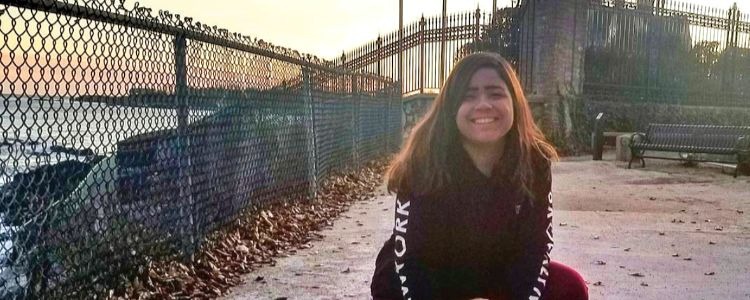Caught Between Two Cultures: Developing a Positive Body Image as a Biracial Woman
Even if you haven’t read any of her novels, you’ve probably heard of Margaret Wolfe Hungerford’s most famous quote, “Beauty is in the eye of the beholder.” It’s a very simple way of explaining aesthetic relativism after all.
We see aesthetic relativism in modern society, like when a celebrity or classmate from high school is praised for being a great beauty but you don’t find them attractive at all.
In a broader context, countries experience this idea by developing their own beauty standards instead of following the same definition.
When you’re caught between two cultures, whether it concerns ethnic background or personal upbringing, these guidelines become tricky to follow. I know this situation too well as an American raised by a Filipino mother and European father.
The Philippines’ lengthy history of Spanish imperialism affected all parts of their society—from their language to beauty standards. When I visited this summer, I noticed how every advertisement portrayed men and women with large eyes, brown hair, and small noses.
It’s no secret that people with “native” features are considered less attractive there. Kids are even told to stay out of the sun to avoid a tan. Grocery stores sell countless items that lighten skin tone.
While I satisfied the beauty standard of a preference towards lighter skin, I faced negative attention about my larger body from my family. Hearing their words made me feel bad about myself for the longest time. But once I returned to the United States, I actually found praise towards my figure.
There’s no debate that American pop culture values thin bodies. The modeling industry and Hollywood movies bombard us with these images every day. Yet there’s enough of an alternative preference towards “thicker” women. Iskra Lawrence and Ashley Graham are celebrated on social media. Drake, Big Sean, and 2 Chainz frequently rap about their love for larger body types in worldwide hits.
This contrast makes me feel empowered in certain settings but hurt in others. So which culture is right? The answer is truly simple: neither.
My purpose in life isn’t to fit an unrealistic mold. Completing that goal won’t provide me with ultimate contentment. My happiness should be derived from my hard work, accomplishment at university, and my kindness to others. These are the qualities of how I want to be remembered. As long as I am eating healthy, surrounding myself with good people, and taking care of my mental care, I will be fine.
Social media has such an easy way of making us feel inadequate in our daily lives. A quick look at instagram shows models and makeup artists who lack a single flaw on their face and body. Yet these celebrities still face criticism and a lack of self-confidence anyway.
I overcome my initial confusion by taking baby steps towards developing better self-esteem. This process began with finding small parts about myself that I loved, regardless if they are approved by the United States or the Philippines. For example, I like how my hair can be effortlessly styled in the morning and how it matches the color of my light-brown eyes.
At the end of the day, it’s completely fine to have low moments when your self-esteem isn’t at its best. Everybody faces this feeling at some point in their lives. There’s no reason why you won’t be able to find your happiness tomorrow. This entire process is part of being human and cannot be done overnight. Confidence is just around the corner!




